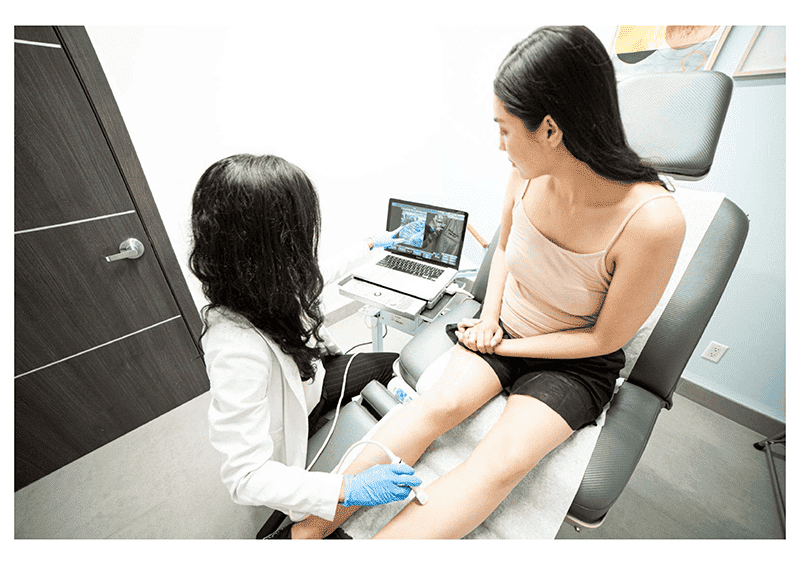If you have noticed swollen, bulging, or painful veins, you might be wondering, what kind of doctor is a vein specialist and when to see one. Vein problems are more than just a cosmetic concern—they can indicate underlying health issues such as chronic venous insufficiency, blood clots, or circulation disorders. Understanding the right type of doctor to consult can save you from unnecessary complications and improve your overall vascular health. In this article, we explore the doctors who specialize in vein care, the treatments they provide, and how to find expert care, including Vein Treatment Long Island.
What Is a Vein Specialist?
A vein specialist is a medical doctor who focuses on diagnosing and treating vein conditions, particularly those affecting the legs and lower extremities. The official medical term for this type of doctor is a phlebologist, although vascular surgeons also often treat vein problems. Phlebologists and vein specialists are trained to evaluate vein function, identify venous diseases, and provide minimally invasive treatments that improve both the appearance and health of veins.
Some of the most common vein conditions they treat include:
- Varicose veins: Swollen, twisted veins visible on the surface of the skin.
- Spider veins: Smaller, red or blue veins close to the skin’s surface.
- Chronic venous insufficiency: Poor blood flow causing leg swelling and skin changes.
- Deep vein thrombosis (DVT): Blood clots in deeper veins, which can be life-threatening.
- Venous ulcers: Open sores that develop due to poor vein function.
By consulting a vein specialist, patients can receive a proper diagnosis and a treatment plan that is tailored to their specific vein condition.
What Kind of Doctor Is a Vein Specialist for Different Conditions?
Depending on the severity and type of vein problem, different specialists may be involved in your care. Here’s a breakdown of the types of doctors who commonly treat vein issues:
- Phlebologists
Phlebologists focus exclusively on vein health. They perform diagnostic tests like ultrasound imaging to evaluate vein function and offer treatments including:
- Sclerotherapy
- Endovenous laser therapy (EVLT)
- Radiofrequency ablation
- Microphlebectomy
Phlebologists are ideal for patients seeking non-surgical or minimally invasive treatments for varicose and spider veins.
- Vascular Surgeons
Vascular surgeons are trained to handle more severe vein conditions, including blood clots, venous ulcers, and complex varicose veins. They can perform advanced surgical interventions if minimally invasive options are insufficient.
- Interventional Radiologists
These specialists use imaging techniques to guide minimally invasive procedures. For vein problems, interventional radiologists can perform endovenous procedures, embolizations, and other image-guided treatments.
- Dermatologists
While dermatologists are primarily skin specialists, some dermatologists focus on cosmetic vein treatments, particularly spider veins. They may use sclerotherapy or laser treatments to improve the appearance of veins without addressing deeper vein function.
When Should You See a Vein Specialist?
It’s important to know when to consult a vein specialist to prevent complications. You should see a vein specialist if you experience:
- Persistent leg pain or swelling
- Visible varicose or spider veins
- Leg heaviness or fatigue
- Skin changes such as discoloration or ulcers
- History of blood clots
Early consultation can prevent serious complications like deep vein thrombosis or chronic venous insufficiency and improve both vein health and appearance.
How Vein Specialists Diagnose Vein Problems
Diagnosis starts with a detailed medical history and physical examination. The vein specialist will often use non-invasive imaging techniques, including:
- Duplex ultrasound: Checks blood flow and detects vein blockages.
- Venography: X-ray imaging with contrast dye for detailed vein mapping.
- Photoplethysmography: Measures vein efficiency and reflux.
Once the evaluation is complete, the vein specialist will discuss treatment options and develop a personalized plan.
Common Treatments Offered by Vein Specialists
Modern vein care has shifted toward minimally invasive procedures that reduce recovery time and improve outcomes. Some common treatments include:
- Sclerotherapy
A solution is injected into the vein, causing it to collapse and gradually fade. Ideal for smaller veins and spider veins.
- Endovenous Laser Therapy (EVLT)
A laser fiber closes malfunctioning veins from the inside, reducing swelling and pain. This treatment is highly effective for larger varicose veins.
- Radiofrequency Ablation
Radiofrequency energy heats the vein wall, causing it to collapse and seal. It’s a safe and highly effective option for chronic venous insufficiency.
- Vein Stripping and Phlebectomy
Surgical removal of problematic veins is reserved for severe cases. Modern techniques focus on smaller incisions and faster recovery.
How to Find a Vein Specialist in Long Island
If you are looking for expert vein care, Vein Treatment Long Island is a trusted option. When choosing a vein specialist, consider the following:
- Board Certification: Ensure the doctor is board-certified in phlebology or vascular surgery.
- Experience: Look for specialists with extensive experience treating your specific vein condition.
- Patient Reviews: Check reviews for patient satisfaction and outcomes.
- Technology: A modern vein clinic should offer minimally invasive procedures using advanced imaging tools.
Why Early Intervention Matters
Delaying treatment for vein problems can lead to serious complications. Untreated varicose veins may progress to leg ulcers, blood clots, and chronic pain. By consulting a vein specialist early, you can prevent complications and improve your quality of life. Treatments today are safer, less invasive, and highly effective at relieving pain and restoring vein function.
Conclusion
Vein problems are more than a cosmetic concern—they can signal serious health issues if left untreated. Knowing what kind of doctor is a vein specialist and when to see one is essential for maintaining healthy veins and preventing complications. Whether you have varicose veins, spider veins, or chronic venous insufficiency, a qualified vein specialist can provide personalized care and advanced treatment options.
For patients in Long Island, Vein Treatment Long Island offers comprehensive vein care with board-certified specialists and state-of-the-art treatments. Don’t ignore vein problems—early intervention can improve your health, comfort, and confidence.
Take control of your vein health today and consult a vein specialist to explore safe, effective solutions tailored to your needs.

